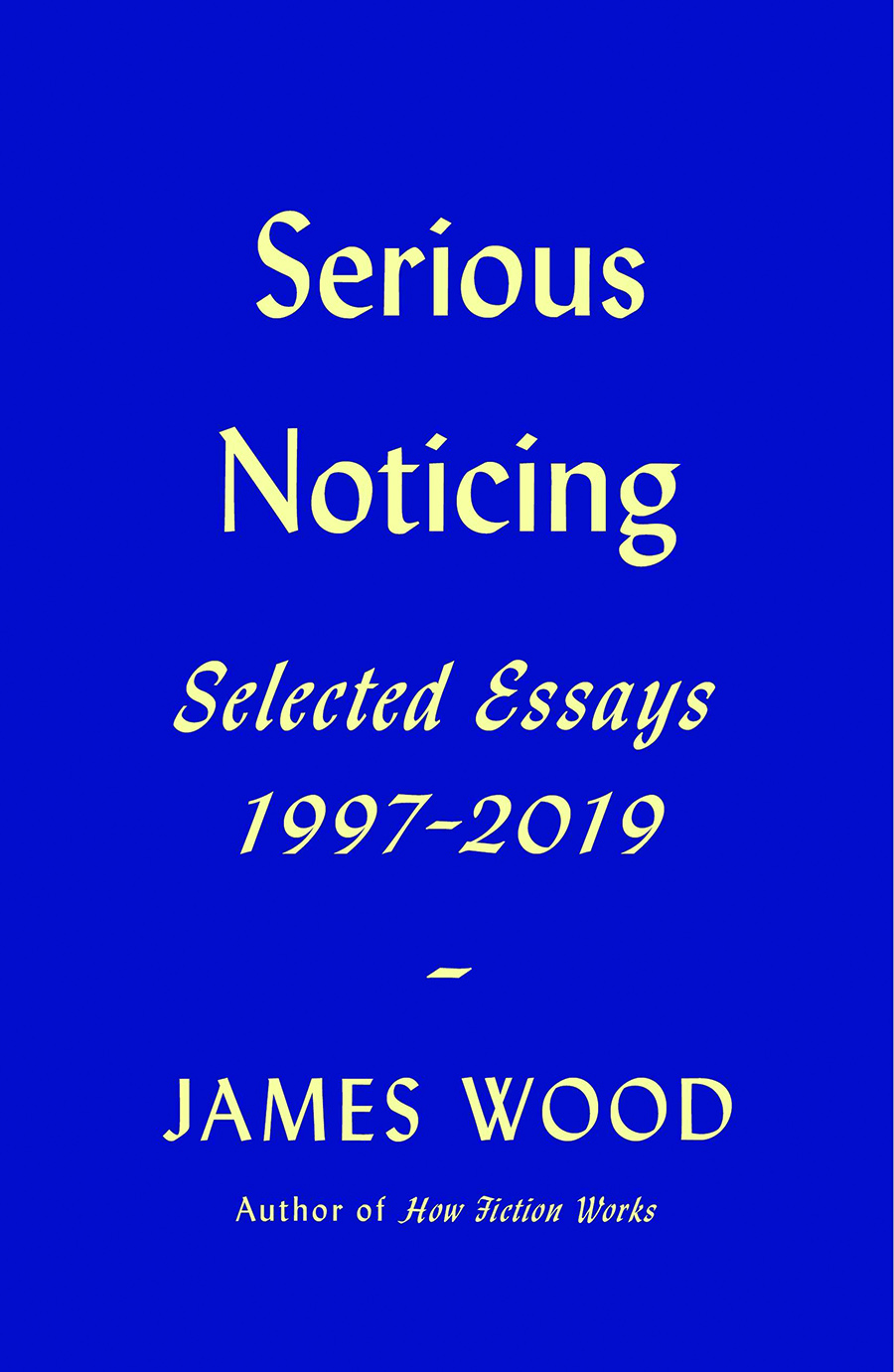During his long career reviewing books for the Guardian, the New Republic, the London Review of Books, and the New Yorker, James Wood has established himself as perhaps the most respected, and feared, contemporary literary critic.
Although he’s mellowed a bit with age, Wood is an old-school critic who holds writers to old-school standards. His work is powered by an intense sense of moral purpose, and when he upbraids writers, even gently, for failing to meet their potential, the rebuke stings. In a 2000 essay, he coined the term “hysterical realism” to describe the big, zany, conspiratorial novels of Zadie Smith, Salman Rushdie, Thomas Pynchon, Don DeLillo, and others. “An excess of storytelling has become the contemporary way of shrouding, in majesty, a lack,” he argued. “That lack is the human.”
Published this month, Serious Noticing: Selected Essays, 1997-2019, collects 28 of Wood’s best pieces. The title refers to the art of criticism, but also to the quality Wood most admires in great fiction, the vividness that makes books human and real; he commends Anton Chekhov’s stories as “strewn with unsolved details” that create “a kind of newspaper of the intimate fantastic.”
Wood is a fierce proponent of realist literature, featuring plausible, persuasive characters and plot expressed in beautiful, descriptive prose. “Lifelike” is his highest praise. His models are Chekhov, Leo Tolstoy, Gustave Flaubert, and contemporary realist novelists such as Elena Ferrante. He particularly likes to champion free indirect style, a technique in third-person fiction of temporarily slipping into a character’s voice. (Wood, who has written two novels, uses it to great, if sometimes exhausting, effect in his own work.)
Unsurprisingly, Wood is skeptical of postmodern writing in general and savage about the “shallowness” of the postmodern novelist Paul Auster in particular. “At times,” he writes of Auster’s tendency toward cliché, “the prose seems to be involved in some weird, breathless competition to fit the greatest number of shopworn objects into its basket.” In illustrating writers’ tics, Wood uses parodies to particularly brutal effect.

Because he writes mainly about other people’s writing, it is easy to forget that Wood himself is a nice stylist with a talent for authoritative, declarative sentences. His book reviews often feel less like reviews than manifestos. A surprisingly positive piece from 2007, on Cormac McCarthy’s novel The Road, opens with typical verve: “In addition to the 9/11 novel, and the 9/11 novel that is pretending not to be a 9/11 novel, an old genre has been reawakened by new fears: the post-apocalyptic novel (which may well be, in fact, the 9/11 novel pretending not to be one).”
The occasional flashes of autobiography in this collection are fascinating and lovely, especially those in which Wood describes his childhood in Durham, England, where he was raised in a regimented, “somewhat austere” evangelical household. “Except for the band of white starch round his neck,” he writes of his childhood schoolmaster, “Canon Grove was entirely colourless — his ancient Oxford shoes were black, his thick spectacles were black, the pipe he smoked was black. He seemed to have been carbonised centuries ago, turned into ash, and when he lit his pipe, it seemed as if he was lighting himself.”
In its ambivalent nostalgia, Wood’s more personal writing recalls the essays of the late historian Tony Judt, another English intellectual who made his life in America. The book closes, fittingly, with a meditative piece on packing up his late father-in-law’s library.
Wood’s shadow in the literary world is long and perhaps a bit suffocating. “It has been decided of late that the face of literary criticism shall belong to James Wood,” the writer William Deresiewicz complained in 2008. Deresiewicz argued that the stature accorded Wood is a reflection on the general poverty of contemporary intellectual life; Wood’s shortcomings are overlooked because so few other cultural critics write with such rigor, and none, including Wood, command the kind of authority that the postwar New York intellectuals did.
As a case against Wood, this may or may not be fair, though the larger indictment of contemporary intellectual life certainly rings true. In that sense, at least, we should be thankful for Wood. If there is a unifying tone to his criticism, it’s that of the benevolent taskmaster: sometimes praiseful, sometimes harsh, always holding us to a higher standard, always urging us to do better.
J. Oliver Conroy’s writing has been published in the Guardian, New York, the Spectator, the New Criterion, and other publications.

